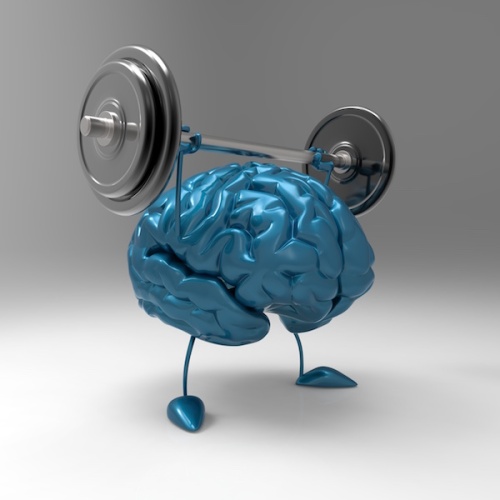Experts in aging and Alzheimer’s disease are conducting a national clinical study to determine if exercise may be an effective non-drug intervention for maintaining cognitive fitness.
The Rush Alzheimer’s Disease Center at Rush University Medical Center is the only site in Illinois, and one of only 15 sites across the United States leading the Exercise in Adults With Mild Memory Problems (EXERT) study, which is trying to determine if exercise can slow the progress of memory loss and cognitive impairment in older adults.

Brain
Neuroscientists are collaborating with the YMCA to provide individualized, one-on-one exercise programs and personal training to study participants. Rush will be working with the McGaw YMCA in Evanston, Illinois, to provide 45-minute personal training sessions for one year.
Adults with memory issues may avoid being active when they need it most
“We want to see if a personalized program implemented in the community and prescribed by health care providers can be an effective therapy for people with memory issues,” said Dr. Neelum Aggarwal, associate professor of neurology and principal investigator of the EXERT study at Rush.
“There have been some studies suggesting that exercise may be able to delay or prevent dementia,” Aggarwal continued. “The EXERT study is a longer trial looking at a larger number of participants who have short-term memory loss that may be impacting some aspect of their day-to-day functioning.”
“Some older adults shy away from social situations or being active because of their memory issues during a time when they need it the most,” said Aggarwal. “The personalized, one-on-one attention from a program like this may be more beneficial for them.”
Study participants will receive free Y membership and personal training
The Rush portion of the EXERT study will be enrolling 300 people ages 65 to 89 with mild memory loss – also known as mild cognitive impairment, a condition that often precedes Alzheimer’s disease dementia. The study is looking to enroll people who are not as active, because people who are physically fit may already be at peak brain function. To qualify for the trial, participants may have engaged in casual, low-intensity physical activity, but not rigorous exercise.
Based on the trial results, neurological researchers are hoping to develop an evidence-based program that will tell people the type and frequency of exercise they need to support memory and thinking skills.
All trial participants will receive a free membership at the participating YMCA where they will work closely with a personal trainer for one year. Participants then will exercise on their own for an additional six months.
Memory tests and MRI will compare effects of high- and low-intensity exercise
Participants will be randomly assigned to one of two groups. The “high-intensity” group will walk on a treadmill and take exercise classes that raise their heart rate to 75 percent of capacity. The “low-intensity” group will do stretching, balance and range-of-motion exercises.
All participants will work out in four 45-minute sessions per week.
In addition, they will undergo the following tests and procedures at the beginning of the trial and then every six months:
- Memory and other tests to measure changes in thinking and memory
- Magnetic resonance imaging (a type of brain scan) to measure changes in brain blood flow and brain size and structure
- Collection of blood and cerebrospinal fluid to measure Alzheimer’s-related changes.
Walking fitness tests and sleep studies are also part of the trial.
The study is part of the NIA-supported Alzheimer’s Disease Cooperative Study, a consortium of universities and research centers in the United States and Canada.
I have written about the connection of exercise and the brain a number of times. Please check out my Page – Important facts about your brain (and exercise benefits).
Tony








There is no question that exercise is brain healthy. Unfortunately, this fact does not seem to motivate people to begin an exercise regimen. People still view exercise as a recreational activity instead of an ESSENTIAL activity for healthy living. Until this perception is altered, many will avoid this necessary component of health.
LikeLiked by 1 person
Right and that is such a waste. There are a lot of fun activities that are exercise and people could enjoy like dancing, even gardening.
LikeLiked by 1 person
Exercise is such a great thing… physical health aside, it can really my mood and emotional well being 🙂
LikeLiked by 1 person
Thanks for sharing that and congrats on such a wonderful positive attitude. Keep up the good work!
LikeLiked by 1 person